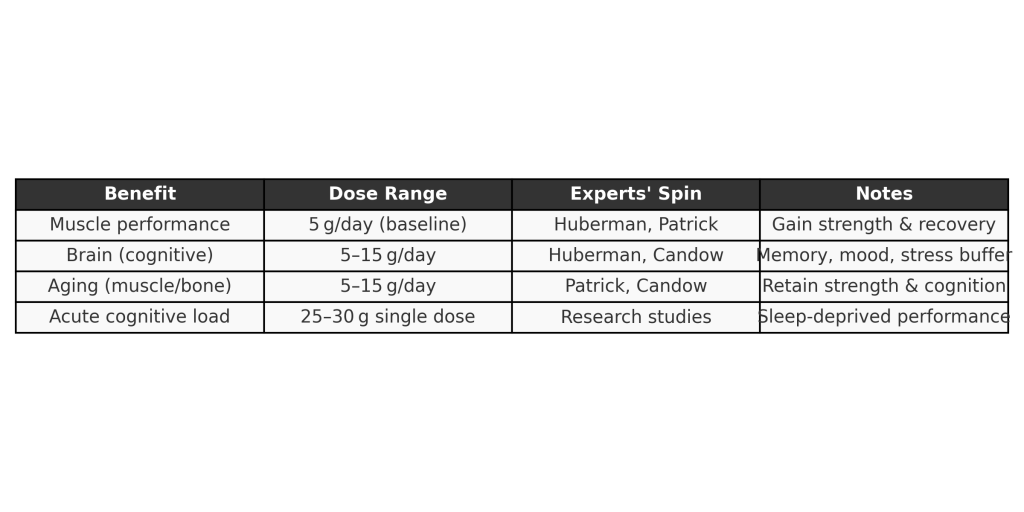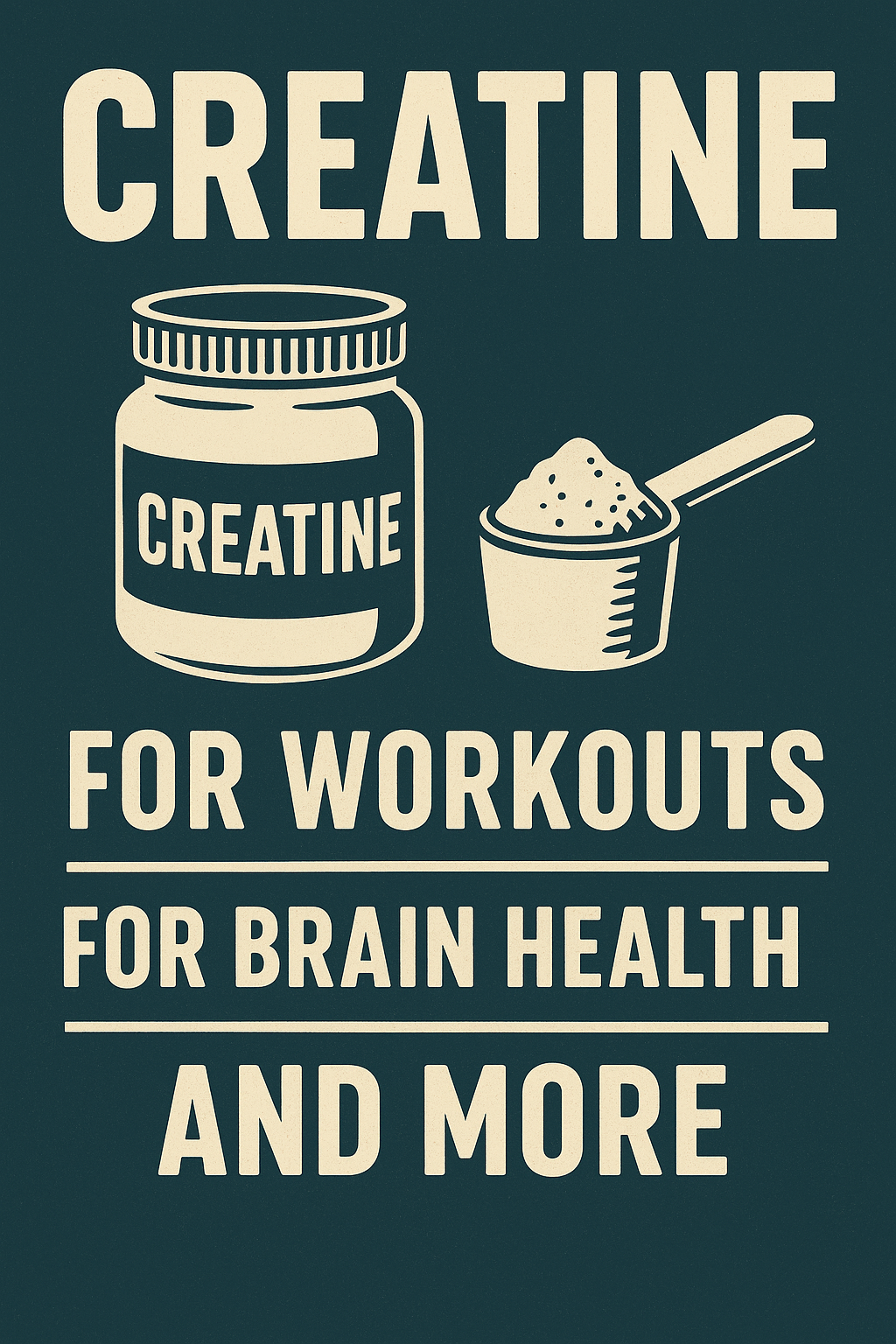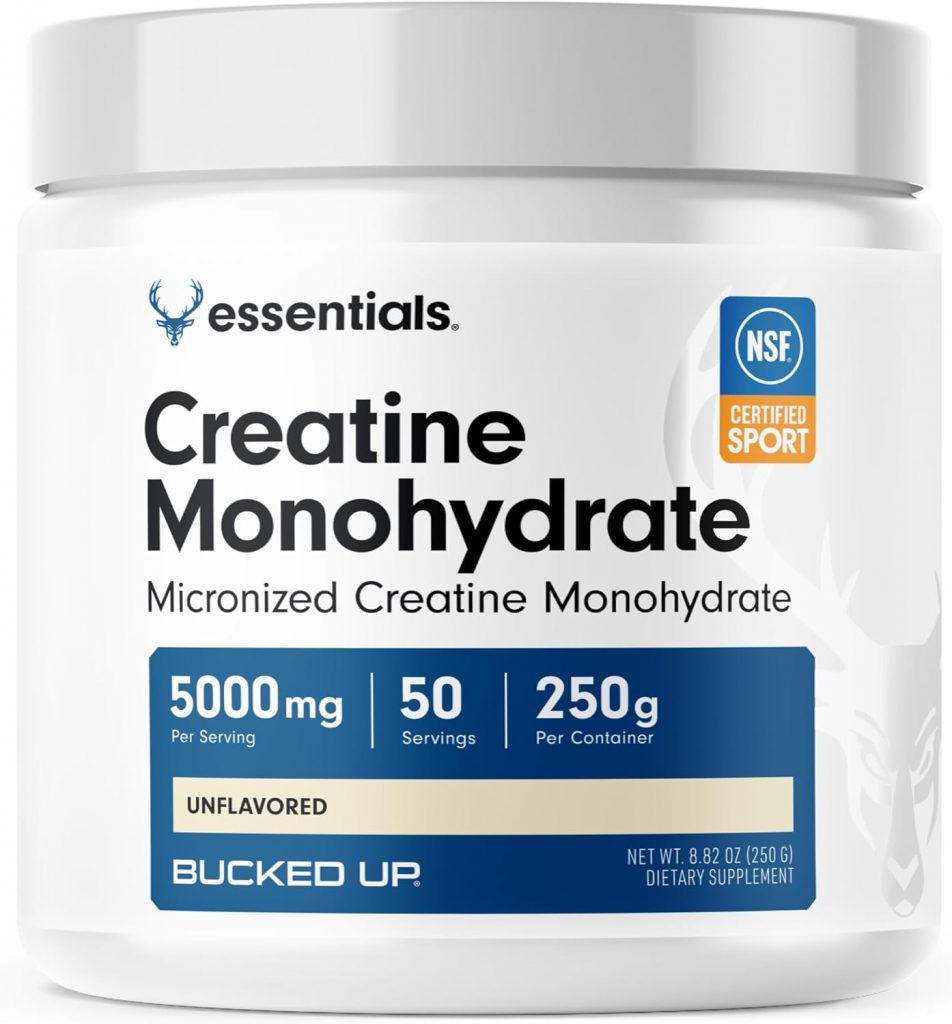If you’ve ever hung around a gym long enough, you’ve heard about creatine. Usually from a guy in a stringer tank who says it’s the secret to getting “huge, bro.” But here’s the plot twist – creatine isn’t just for meatheads chasing bicep peaks. It’s also quietly one of the most brain-friendly, aging-friendly, recovery-friendly supplements out there.
We’re talking about something that’s been studied for decades, backed by actual peer-reviewed science, costs less than your oat milk latte, and, here’s the kicker, might help you remember where you left your car keys.
What Creatine Actually Is (Without the Biochem Degree)
Creatine is a compound your body already makes from amino acids, hanging out in your muscles and brain. Its main gig is to recharge ATP (adenosine triphosphate) your body’s “energy coin” that gets spent whenever you move, lift, sprint, or think really hard.
The phosphocreatine system is basically the pit crew that runs in, refuels your ATP tank, and gets you back on the track in seconds. For muscles, that means another rep. For your brain, it means remembering why you opened the fridge.
The Most Studied Supplement in the Game
This isn’t hype. Creatine monohydrate is considered the most researched sports supplement in existence. Review after review confirms: it works, it’s safe for healthy people, and it’s cheap.
It’s the anti-Goop supplement. No crystals. No mystery mushrooms from a “sacred forest.” Just a powder you scoop and drink.
For the Gym: More Reps, More Recovery
Here’s what decades of studies tell us:
- Creatine can increase power output and repeated sprint/rep performance by 5–15%.
- You can train harder without feeling as wrecked afterward.
- It reduces muscle breakdown and speeds up recovery between sessions.
Translation: if you like doing more work in less time (and who doesn’t?), creatine’s your guy.
For the Brain: Energy When You Need It Most
Your brain is 2% of your body mass but hogs 20% of your energy. Under normal conditions, it runs fine. But under stress – poor sleep, high-pressure work, depression – it can run out of juice.
Creatine helps because neurons can use phosphocreatine as a quick energy source, just like muscles. Studies have shown it can improve attention, working memory, and reaction time during sleep deprivation. Some research even found single doses of ~25g could restore brain function to pre-sleep-deprivation levels.
That’s not “smart drug” magic. It’s basic bioenergetics. You’re literally topping off your brain’s energy tank.
As You Age: The Quiet Anti-Decline Agent
Creatine isn’t just for 20-somethings chasing PRs. It’s also been shown to help older adults maintain muscle mass, bone density, and even cognitive function. For anyone worried about sarcopenia (age-related muscle loss) or frailty, creatine is like cheap insurance.
Pair it with strength training, and you’re stacking the deck against Father Time.
How Much Should You Take?
The boring-but-true answer: it depends on your size and goals.
- Standard baseline: 3–5g per day. Works for most people.
- Bigger bodies/athletes: 10–15g per day for faster tissue saturation.
- Cognitive boost under stress: Up to 25–30g single dose (in studies, usually for sleep-deprived subjects).
- No need for a “loading phase” unless you’re impatient.
The Expert Rundown (Paraphrased for Humans)
- Rhonda Patrick: 5g every morning, same time each day. Optional extra scoop on high-demand days. But currently exploring higher doses, up to 25g for a brain boost.
- Andrew Huberman: 5g baseline, flexible timing, heavier folks can go higher. Works for workouts and cognition.
- Darren Candow: Thinks higher doses may have anti-aging benefits, especially for brain health.
- Examine.com crew: Monohydrate is the king form. Stick to it.
The Safety & Myth-Busting Corner
- Kidney damage: Not in healthy people. It may raise creatinine levels on a blood test, but that’s not kidney damage – it’s just a byproduct of creatine metabolism.
- Bloating: It’s water inside the muscle, which is actually a good thing for performance and recovery.
- Hair loss: No good evidence. If you’re losing hair, it’s probably genetics, not creatine.
- Long-term use: Decades of research show it’s safe for healthy adults.
The Chart: Creatine Benefits & Dosing at a Glance

The Bottom Line
Creatine is not a “gym bro” supplement anymore – it’s a low-cost, well-studied, multi-tool for your muscles, brain, and long-term health.
If you train hard, it’ll help you do more. If you think hard, it’ll help you last longer. If you’re aging (spoiler: you are), it’ll help you keep what you’ve got.
Start with 5g/day. Be consistent. Stay hydrated. And enjoy the rare feeling of using a supplement that’s actually earned the hype.







Comments by The Dapper Savage